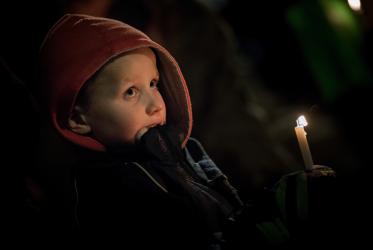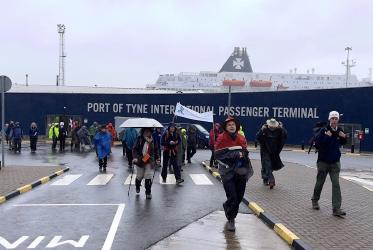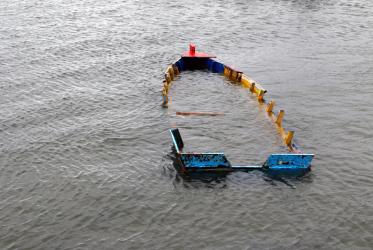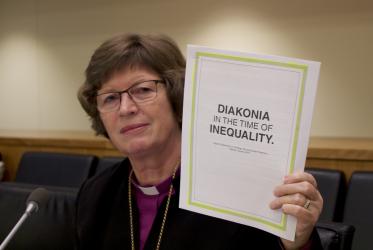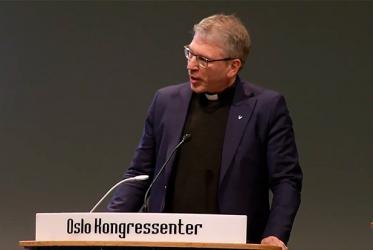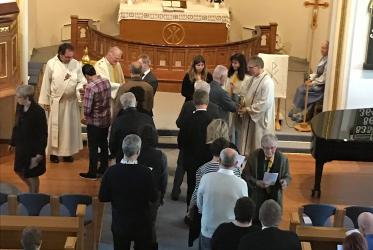Displaying 1 - 20 of 20
WCC general secretary: “Love opens the way to change”
13 February 2020
Sustainable resourcing for sustainable development
05 February 2019
All pilgrim routes lead to COP24
11 December 2018
WCC moderator speaks at Justice Conference in Norway
09 November 2018
GETI students plant trees, in service for greener future
07 March 2018
COP21: “A moment of truth”
01 December 2015
Hundreds of pilgrims making way to UN Climate Change Conference
27 October 2015
Pilgrimage for climate justice continues in Norway
04 August 2015
Churches engage in development dialogue on Africa
06 March 2013
